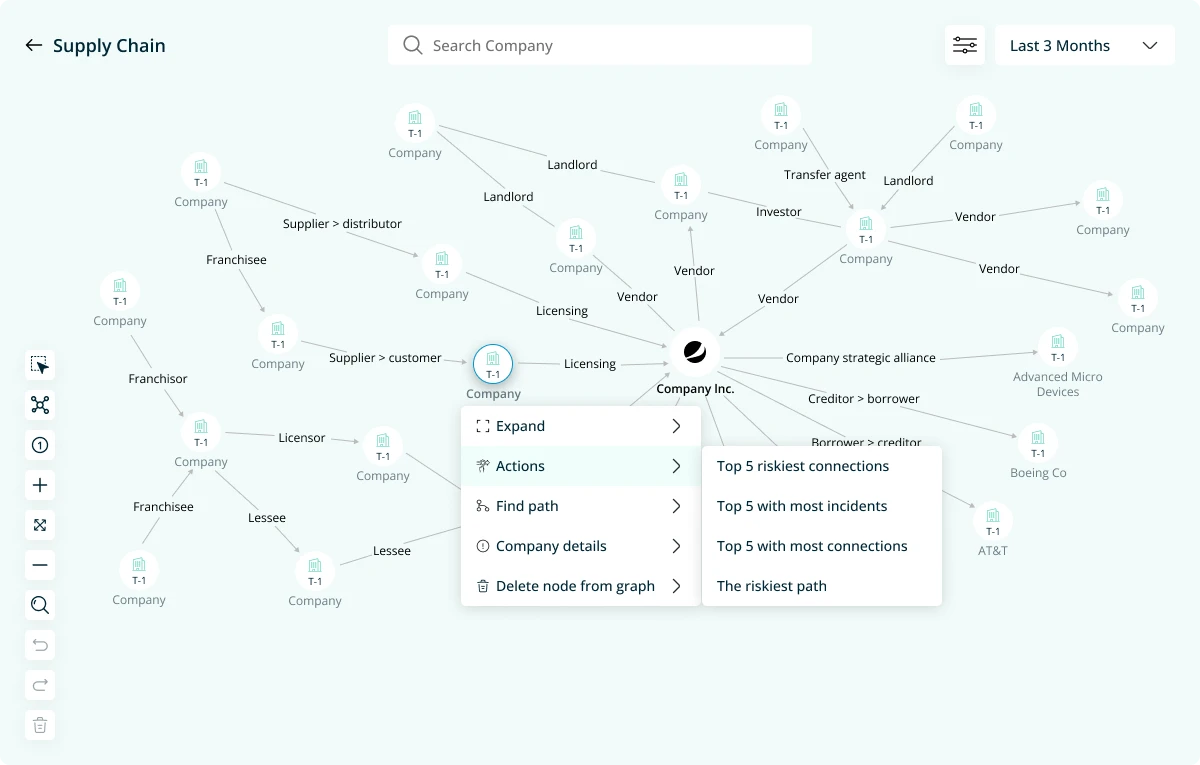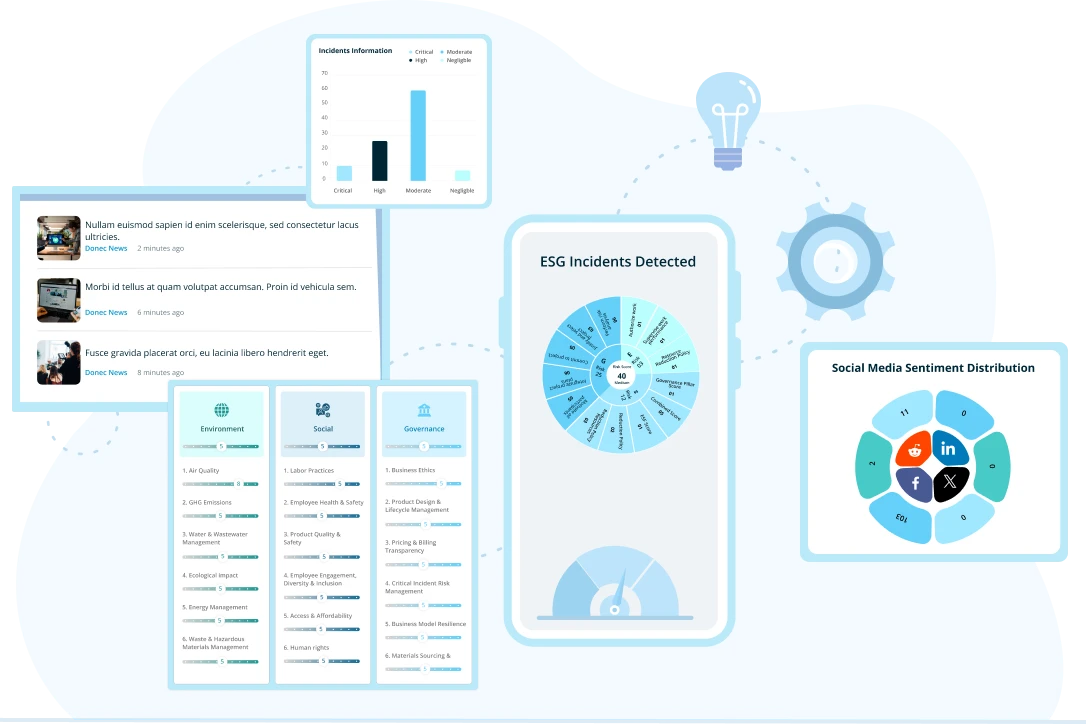
Corporate Sustainability Due Diligence Directive (CSDDD)
The CSDDD mandates large companies to prevent and remedy human rights and environmental abuses in their global supply chains.
- Requirement for human rights and environmental due diligence
- Integration of due diligence into corporate policies
- Identifying adverse impacts within own operations, subsidiaries & value chains
- Prevention or mitigation of potential adverse impacts
- Ending or minimizing of actual adverse impacts
- Providing access to complaint mechanisms for value chain concerns
- Assessing effectiveness of policies and actions
- Publicly report on due diligence measures

German Supply Chain Act (Lieferkettensorgfalts- pflichtengesetz, LkSG)
The LkSG requires companies in Germany to establish processes to ensure respect for human rights and environmental standards within their global supply chains.
Risks to assess:
- Child and forced labor as well as slavery
- Disregard of labor protection obligations and freedom of association
- Inequality and withholding of an adequate wage
- Environmental pollution impacting human rights and land deprivation
- Torture and cruel, inhuman or degrading treatment.
- The import and export of waste
- Production and disposal of mercury-containing products
- Production or use of certain persistent organic pollutants

Corporate Sustainability Reporting Directive (CSRD)
The CSRD mandates disclosure on material ESG risks on the company and on how the company’s operations and value chain impact people and the planet
(double materiality).
European Sustainability Reporting Standards (ESRS):
ESRS 1 - General Requirements
ESRS 2 - General Disclosures
ESRS E1 - Climate Change
ESRS E2 - Pollution
ESRS E3 - Water and Marine Resources
ESRS E4 - Biodiversity and Ecosystems
ESRS E5 - Resource Use and Circular Economy
ESRS S1 - Own Workforce
ESRS S2 - Workers in the Value Chain
ESRS S3 - Affected Communities
ESRS S4 - Consumers and End Users
ESRS G1 - Business Conduct

French Vigilance Act
The French Duty of Vigilance Law is a general obligation of conduct, the purpose of which is to identify risks and prevent severe breaches of human rights and fundamental freedoms, health and safety of persons and the environment resulting from the activities of a group and its value chain.
Identify risks throughout supply chains relating to:
- Human rights (UN Guiding Principles on Business and Human Rights).
- Environment Additional requirements:
- Map, analyse and rank risks
- Develop and implement risk mitigation measures
- Develop an alert mechanism that identifies potential or actual risks.

EU Regulation on Deforestation-Free Products (EUDR)
The EUDR mandates due diligence obligations for companies placing or exporting certain commodities within the EU market, requiring assessment and mitigation of risks associated with deforestation or forest degradation.
Products covered (including products derived from these commodities):
- Soy
- Beef
- Palm Oil
- Wood
- Cocoa
- Coffee
- Rubber

UK Modern Slavery Act
The UK Modern Slavery Act mandates companies to produce an annual slavery and human trafficking statement outlining their efforts to prevent modern slavery.
Developing this statement necessitates identifying and assessing risks within the supply chain associated with:
- Slavery, servitude and forced or compulsory labor
- Human trafficking
- Exploitation

The US Uyghur Forced Labor Prevention Act (UFLPA)
The UFLPA aims to prevent goods made with forced labor in Xinjiang, China, from entering the United States.
Requirements include;
- Rebuttable presumption of forced labor
- Enhanced supply chain due diligence and traceability
- Stringent supply chain management measures
- Recordkeeping and reporting obligations

United Nations Global Compact (UNGC)
The UNGC encourages businesses to adopt sustainable practices, promoting responsible human rights, labour, environmental, and anti-corruption measures throughout supply chains.
- Support and respect the protection of internationally proclaimed human rights.
- Ensure not to be complicit in human rights abuses.
- Uphold freedom of association and effective recognition of the right to collective bargaining.
- Eliminate all forms of forced and compulsory labour.
- Abolish child labour effectively.
- Eliminate discrimination in employment and occupation.
- Support a precautionary approach to environmental challenges.
- Undertake initiatives to promote greater environmental responsibility.
- Encourage the development and diffusion of environmentally friendly technologies.
- Work against corruption in all its forms, including extortion and bribery.

Sustainable Development Goals (SDGs)
The SDGs are global targets for economic, social, and environmental sustainability, with the aim of ending poverty, protecting the planet, and ensuring that by 2030 all people enjoy peace and prosperity.














